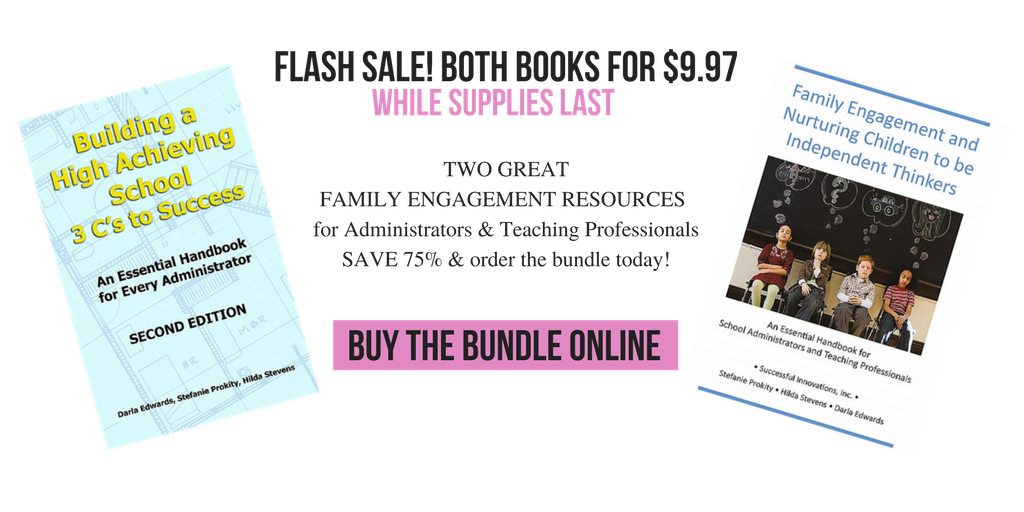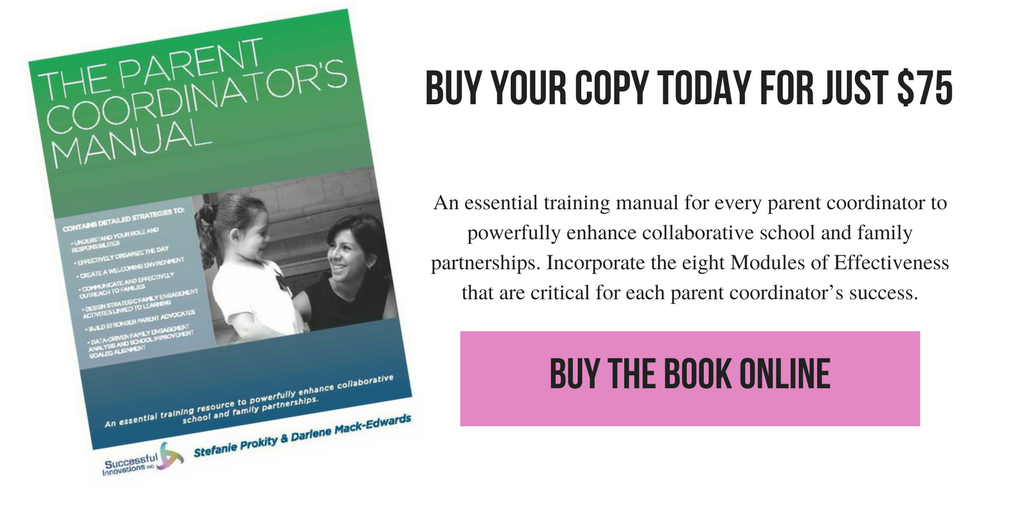Several Democratic Senators as well as the National Governors’ Association, the National PTA, and the American Federation of Teachers also expressed dismay over the scaled down importance of input from the education community. Under these new guidelines, states will no longer be required to involve their local community of stakeholders in crafting their accountability plans. At the heart of family engagement initiatives, building strong, collaborative family, school and community partnerships is the key to success. When these trustful partnerships are established and sustained, student achievement increases. If these new guidelines do not require states to include ALL stakeholders in the accountability process then key groups, including parents, will be left out and their voice will not be heard. When school divisions underrepresent key groups in the school improvement process then inequalities coupled with discrimination and violation of peoples’ rights ensues.
We urge school divisions, as they navigate the new ESSA guidelines and requirements, to not ignore valuable collaboration and input from ALL stakeholders. We encourage all school divisions to embrace creativity and ingenuity when outreaching to parents and community members and including them in the school improvement process. Many states have already established programs and outreach initiatives to build capacity among families, schools, and communities. Maryland has created the “Maryland Parent Involvement Matters Award” (PIMA) program, the first of its kind in the nation, which shines a spotlight on parents and those with legal responsibility for a child who have had a positive impact on public schools. Colorado is developing decision makers in their program called; “Family and School Partnerships in Education Month”. Parents/families become a part of the decision making process in the educational options for their children, school and community. And in Texas, parents and families build capacity through their “Parent Empowerment Toolkit”. This toolkit is a step-by-step guide on how to build capacity with teachers, administrators and parents.
If you are looking for assistance with the new ESSA guidelines and want more family engagement outreach ideas and strategies then register for the 2018 National Family Engagement Summit on March 21-23, 2018 in Richmond, VA. www.nfesummit.com
ESSA provides the foundation to understand the past and present educational landscape relating to family and school partnerships. By understanding the new ESSA guidelines, we can better predict where we are headed. As 2018 approaches, what topics and trends can we expect to emerge which relate to family and school partnerships? Below is a brief summary of what we anticipate to be on the horizon:
Increased Number of Parent Camps
We will begin to witness a remarkable increase in the number of states hosting their own Parent Camps in the upcoming year. Parent Camp is an “unconference” that brings together families, educators, community members, faith-based representatives, and students. The goal of the camp is to facilitate powerful conversations to impact students’ learning. Parent Camp is a phenomenal opportunity for stakeholders to collaborate, network, and share best practices. It is organized to embrace the expertise and perspectives of diverse participants. Georgia Department of Education is beginning 2018 utilizing the Parent Camp model to kick-off their state-wide family engagement conference. As additional states experience success with this “unconference” model, we can expect to see this become more of the norm.
More Equity in Family and School Partnerships
According to the National Center for Education Statistics, 24.4 million white students in grades Pre-K through grade 12 are enrolled in school compared to 26.3 million minority students. The growing diversity that we see in our classrooms creates an increased need for states to promote more innovative family engagement strategies integrated into their reform and improvement efforts. We applaud Commissioner Wentzell of Connecticut for creating the Commissioner’s Roundtable for Family Engagement in Education. This is a creative way to engage stakeholders in meaningful dialogue embracing family engagement while promoting equity and excellence.
We are also seeing an increase in the number of leaders who are joining the Family Engagement State Leaders Network. This network is expanding as more state leaders recognize the valuable role of family and school partnerships. This network is led by the American Institutes for Research and builds state education agencies’ capacity to implement and sustain effective family and community engagement initiatives. We can expect to see similar networks at the district and local levels to facilitate the capacity building of leaders to support and scale quality family and community engagement programs.
Greater Advocacy in Support of Federal Education Funding
We can expect to see increased advocacy and support of federal education funding. Federal funds are a critical investment in the future prosperity of our nation. ESSA recognizes that education is the foundation that each child needs to achieve the American dream. Educational budget cuts are in direct conflict of the commitment that Congress has made to our children and stakeholders. Educational advocates will continue to hold politicians accountable to craft a budget that raises defense and non-defense discretionary caps. In the Make America Secure and Prosperous Appropriations Act (HR 3354), educational advocates were successful in getting Congress to include an amendment to support funding for Statewide Family Engagement Centers. Advocates have already started reaching out to Congress about their continued support to fund Statewide Family Engagement Centers at $10 million in FY 2018.
These emerging hot topics are definitely going to stay on our radar in 2018 as we see how the family engagement landscape continues to change throughout the year. We are certainly pleased that we are finally seeing family and school partnerships become a valued priority for states and districts. We look forward to collaborating with educational colleagues and stakeholders around the nation as we work passionately and proudly to ensure that we are making a lasting impact on the lives our nation’s schoolchildren.






























